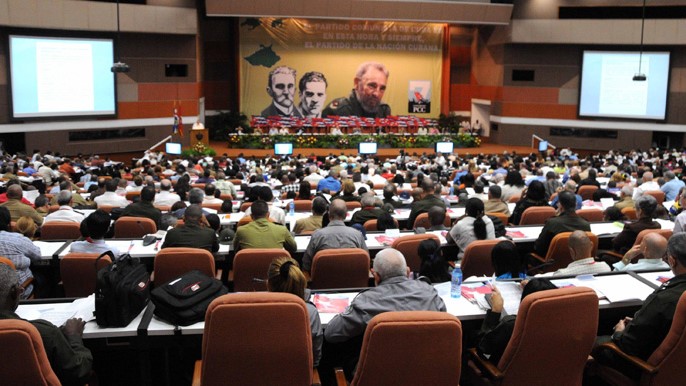As the 8th Congress of the Communist Party of Cuba draws near, the Castroist ruling elite is considering the points to be presented and imposed without much debate at a meeting that could be historic.
Historic because the Castro surname will no longer (if the promise of its current first secretary, Raúl Castro, is kept) form part of the leadership of the sole, supra-constitutional body of political rule in Cuba, which operates on the basis of postulates set down in 1976, faithfully mimicking the party apparatus of the former USSR, having been maintained without substantial variations in the two constitutions that the regime has drafted and approved since then.
Leaving the top position is not an easy decision, especially in a scenario of convulsive changeover in which a mistake could imperil the survival of the Cuban "Revolution" and the security, interests and freedom of the elite’s families, the de facto heirs to power.
The events having transpired in Cuba since November 27, 2020 have shown the PCC that the ideological battle is practically a lost cause. Socialism, as a development model, and the government’s dismal management, carried out with hardly any political pragmatism, has the ruling caste holed up at the headquarters of the Council of State, along with the Central Committee, behind the reinforced walls of each police station and the garrisons of the military intelligence and counterintelligence brigades.
Not only are they losing arguments and legitimacy in the official media, but also on social media, in neighborhoods, and at workplaces. The old mass organizations exist only in the form of an irritating spirit, as they have essentially ceased to exist, spending countless resources on bureaucracy and meetings without attracting any attention. Countless professional organizations nominally belong to the CTC, the FMC, the CDR out of inertia, without any belief in them, out of the fear of the consequences of not doing so. Yawning and nodding unconvincingly in front of their leaders, babbling automatons, is the norm.
The challenges are immense, especially realizing the freedom and respect for individual rights that the government claims to defend, but which it manipulates as best suits it; and making the new generation of artists, intellectuals and professionals obey in the face of institutions that do not provide results or hope for a better future. The scenario is adverse for them, since the part of Cuban society that has not emigrated has been shedding its fear of speaking out and protesting.
The dilemma, then, is how to continue reaffirming "irreversible socialism", as the slogans of the PCC dictate. Since they do not wish to dialogue or listen to peaceful voices that argue for change, there is no choice but to give in, undertake reform or fight.
Surrender or burn the ships?
Surrendering, it seems, as long as Fidel Castro's Army General brother is alive, is not an option. To plot behind his back would be seen as a serious act of treason, for which the current laws call for the death penalty. Reform is not an option either, since both the Constitution of April 2019 and the subsequent normative production that complements it have only served to perfect the regime’s domination, though not even a single provision has been for the benefit of the population.
After failing to follow through on the legislative schedule established by the National Assembly of People's Power for 2020, and postponing for a year the approval of provisions such as the Law on Claiming Constitutional Rights before the Courts, the Law on People's Courts, the Law on Administrative Procedure, the Law on Criminal Procedure, and the Law on Civil, Labor and Economic Procedure, which would guarantee citizens protection through the exercise of rights recognized in the Constitution, the text has been reduced to a symbolic gesture.
The characterization of Cuba as a "socialist state under the rule of law" is, therefore, fallacious, as said rule has been suspended. Hence, fighting back through dictatorial mechanisms of repression is the option, which means the final phase of the liquidation of the so-called "Revolution."
Burning the ships may be the last gamble the old leadership of the PCC is considering. In the absence of a clear willingness to dialogue with the alleged "traitors and mercenaries", the historic elite will make it clear to the members gathered at the Congress that retreat is impossible. Presumably, they will try to calculate the degree to which they can employ "legitimate" violence, authorized by Article 4 of the Constitution.
They will also, probably, warn their successor about the danger entailed by not complying with the "duty to defend the socialist homeland" found in the Constitution, which, in practice, means pitting people against each other.
In the meantime, it is foreseeable that the selective persecution of protestors and opposition leaders will continue, and that they will be subjected to arbitrary trials and character assassination.
